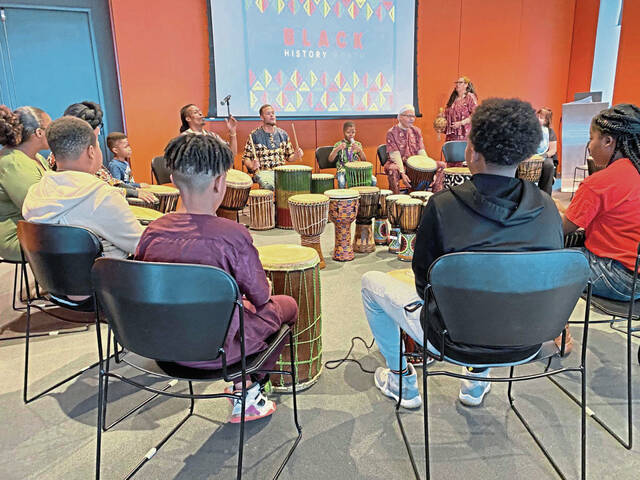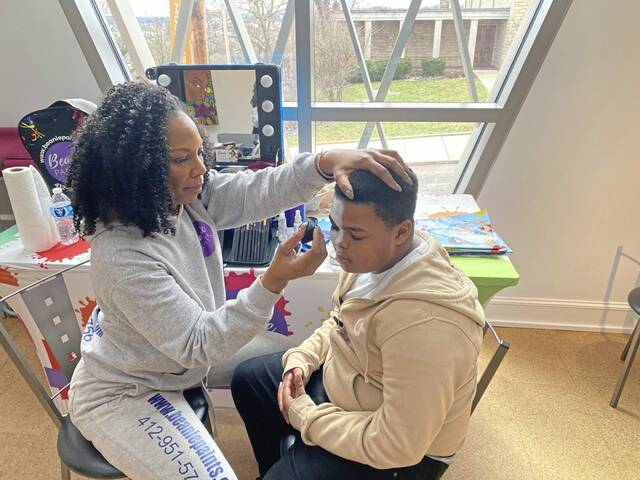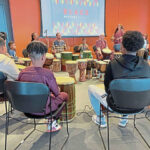It was celebration time Sunday for Laurie Johnson-Wade of New Kensington, who brought her seven grandchildren and two of her daughters to Greensburg for a lesson in Black history — the arts, singing, painting and poetry.
“It’s a celebration of all things good about our history,” said Wade, a descendant of a slave who came from the Wade plantation in Culpepper, Va., after the Civil War ended in 1865. Her ancestor had been forced to fight for the Confederacy during the Civil War and had the surname of the plantation owner.
The five-hour Black History Month event at The Westmoreland Museum of American Art in Greensburg featured a drum ensemble, singing, a children’s storytime, drawing, finished artwork and poetry writing, spread across two floors. It was the first time the Black History Month event was held at the museum, said Elle Marshall, public programs and community engagement manager, who organized the event and brought performers from the Pittsburgh area to Greensburg.
The gathering of people, Black and white, to see exhibits, hear music, have a snack and interact with each other was not lost on Gabrielle Skillings, 28, the new president of the Greensburg-Jeannette Branch of the NAACP.
“It’s important to know your history. It’s important to know where you came from and the history behind it because a lot of people just don’t know … especially with the times now,” Skillings said. “We’re not trying to go back in time.”
The celebration of Black History Month this year comes at a time when the Trump administration has eliminated diversity, equity and inclusion initiatives in the federal government, prompting a similar response in institutions across the nation. At the Justice Department, the Trump administration has ordered new civil rights cases or investigations to be halted.
Black History Month has been part of the nation’s history since President Gerald Ford established it in February 1976, the month in which President Abraham Lincoln and civil rights activist and abolitionist Frederick Douglass were born. President Ronald Reagan issued a proclamation in 1986 that officially designated February as “National Black (Afro-American) History Month.” It was the first time a president formally recognized Black History Month through a proclamation.
Karen Carter of Charleroi appreciated the national and local observance, as they give “people the freedom to come together and celebrate each other and celebrate our history, to celebrate the many accomplishments of our Black music, arts and poetry,” she said.
“It may not be that way next year,” Carter said, noting the turmoil that Trump created last September when he verbally attacked Haitians who had immigrated to Charleroi, claiming they were damaging the community.











